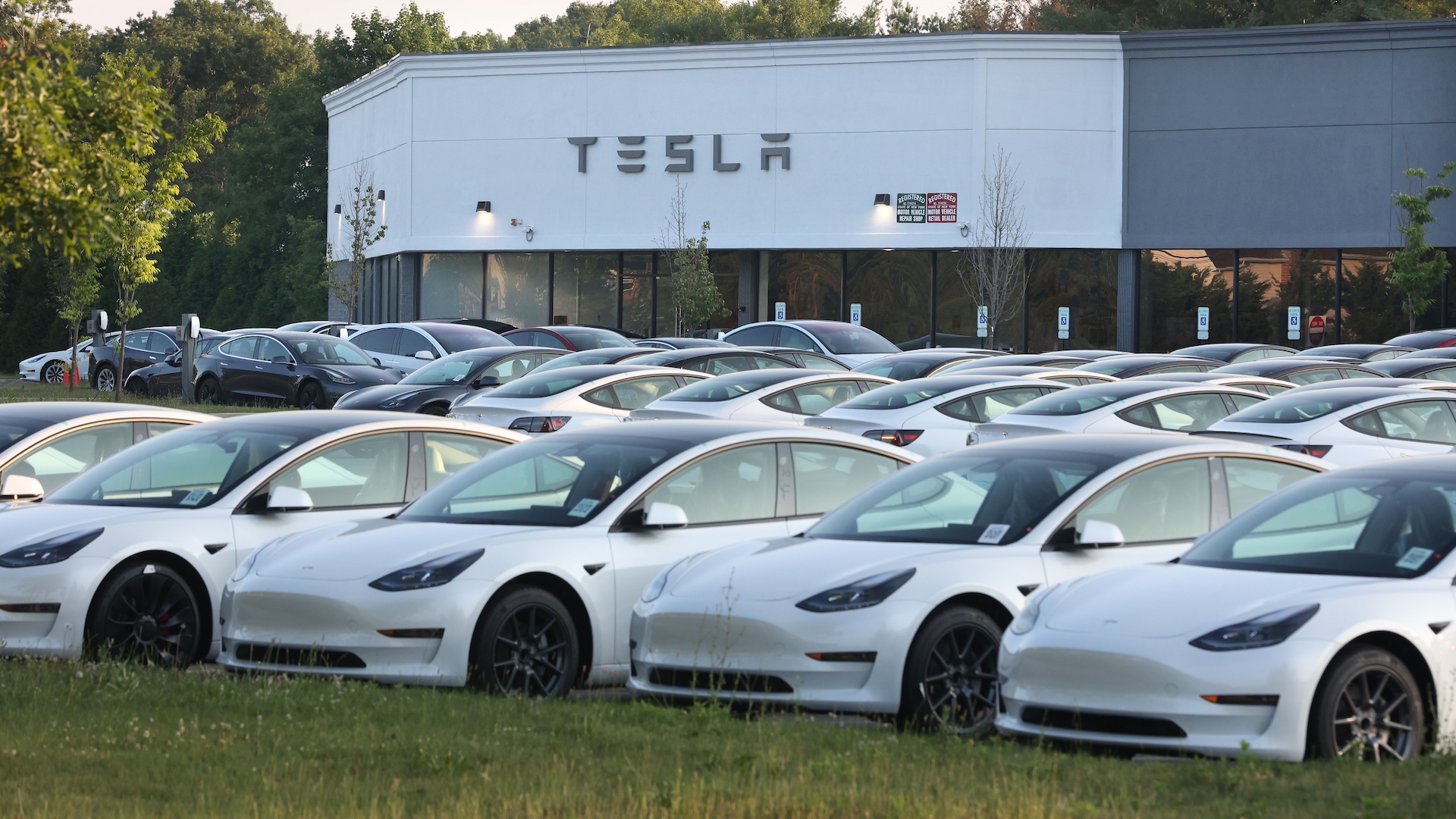

Customers have been waiting since the pandemic for new car prices to chill out and come back down to normal levels. According to Kelley Blue Book, the average transaction price (ATP) for a new car in September 2023 is 24% higher than it was in 2020. However, it seems as if new-car ATP might finally be steadying and, if you’re looking for an electric vehicle, even dropping significantly.
Data from KBB’s parent company, Cox Automotive, shows that ATP was at its peak at the start of 2023, at almost $50,000. However, it dropped 3.4% since then and is now at $47,899. That’s the first time it’s been under $48,000 in over a year. So while new car prices are still significantly higher than they were in 2020, they’re the best they’ve been in a long time.
Electric vehicle ATP dropped drastically over the past year. However, as more and more customers are looking to get into EVs, the state of ATP might look good on paper but it could be artificially enhanced. For example, EV ATP is down about $14,000 from this time last year, which sounds great, but the majority of that comes from Tesla’s dramatic price cut toward the end of 2022 and the beginning of 2023. Tesla’s ATP alone has dropped 22% since September 2022. However, the more new EVs that debut, the greater the choice customers have, which will increase the competitiveness of EV maker pricing and incentives, so we could be seeing the start of a trend that will lower EV ATP.

One of the reasons why ATP has gone down since January is automaker incentives. Cash incentives have been down since the pandemic due to a low supply of new cars—mostly manufacturing delays and chip shortages. Incentives are making a comeback, though, and averaged almost $2,400 in September, around 4.9% of the ATP. That’s down from the 20% in September of 2020 but new-car supply is normalizing, so automakers can offer more incentives. The better the supply, the better the deals. At least that’s how it’s worked historically.
As for EVs, Cox’s data shows that electric car incentives were among the highest in the industry, at an average of 9.8% of ATP. That was second only to high-end luxury cars, whose incentives averaged 10.6% of vehicle ATP.
There’s some worry that the current UAW strike could affect new-car ATP. With the strike shutting plants down for all of the Big Three Detroit automakers, new-car inventory could be affected. Automakers measure their inventory in days’ worth and, according to KBB, domestic automakers had around 60 days of inventory in early October, which is lower than pre-pandemic levels but closer to normal than it’s been since. The UAW strike should be temporary, though, and even if it does affect inventory, it won’t cause years-long ATP raises as the pandemic did.

“At last check, we had 15 new EV models for sale that were not available a year earlier. Better choices and more options are helping push prices lower and drive higher sales,” said Stephanie Valdez-Streaty, director of Industry Insights at Cox Automotive, in a press release.
Finding a new car deal has been an absolute pain over the past few years, especially for EV buyers. Thankfully, there are some signs of it getting easier, as ATPs have stabilized and new-car inventory is building back up. With more and more EVs hitting the market, it should only get better. Hopefully.
Got tips? Send ’em to tips@thedrive.com